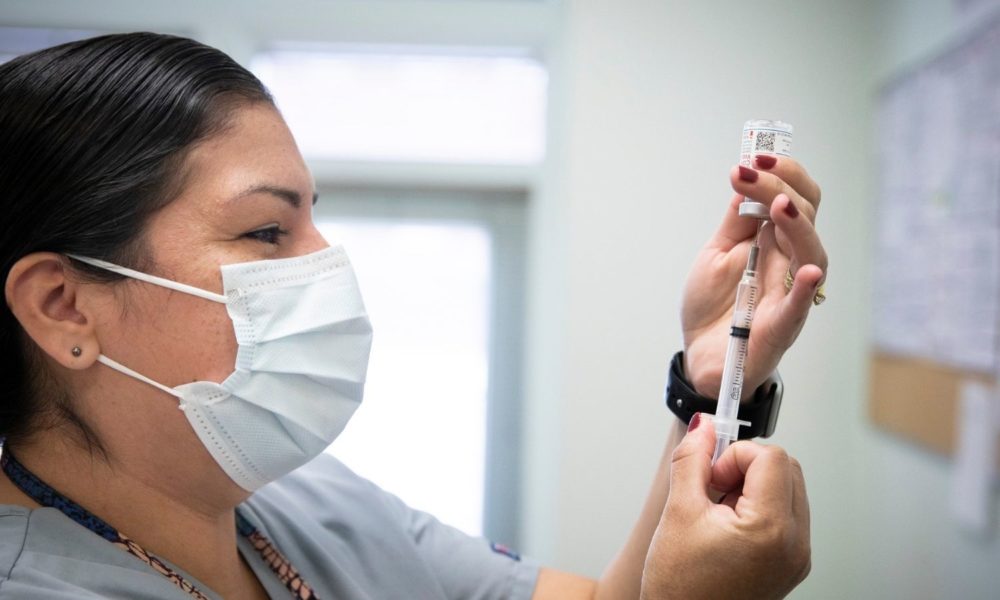Over the past few weeks, the issue of COVID-19 vaccine booster shots has caused a perfect storm of politics, science, and confusion. We’ve seen wide scientific agreement, vigorous debate, and political overstep. As I think about the Biden administration’s actions, I’m both empathetic and enraged by them.
On the one hand, it is not easy to make long-term decisions during a once-in-a-century pandemic about a disease that is still novel and a set of vaccines that has only been available for public use for 10 months. And, while the booster shot issue has, in some ways, split the scientific community, the Biden administration’s approach is certainly grounded in scientific research. Still, the administration cannot be let off the hook for failing to listen to federal scientists and scientists on advisory committees, for releasing confusing and mixed messages to the public, or for failing to prioritize global vaccine equity.
The Good: Promoting booster shots in vulnerable populations
Additional vaccine shots, called booster shots, are sometimes needed to maintain people’s health and safety. For instance, doctors and scientists recommend that adults get a booster shot for the tetanus vaccine every 10 years, while for the vast majority of people, no booster shot is needed for the measles vaccine.
For COVID-19 vaccines, the science about whether booster shots are needed and, if so, when they should be given is notoriously difficult to determine, even for experts, because of how new the virus is and how fast the science is evolving. But most scientists agree that at least some vulnerable populations, particularly the immunocompromised and older individuals, should be encouraged to get a booster shot. The Biden administration has pressed for this approach. In particular, the Food and Drug Administration (FDA) strongly recommended that people who are immunocompromised obtain a booster shot as soon as 28 days after their second shot of the Pfizer or Moderna vaccines. When the CDC’s Advisory Committee on Immunization Practices took a hard look at the evidence to date, they recommended booster shots for people 65 years and older; people living in nursing houses; and people with certain medical conditions.
It should be noted that the COVID-19 vaccines continue to be remarkably effective at reducing the risk of severe disease, hospitalization, and death. In fact, as UCS explains in our vaccine FAQ, the evidence continues to build that the vaccines are proving effective in all studied populations and against the contagious Delta variant. However, in certain populations and at certain times, booster shots appear to be helpful in maintaining protection against the virus, especially against mild and moderate disease.
The Bad: Overruling scientists and confusing messaging
The Biden administration’s actions are not detached from the best available science. However, the administration seems unwilling to engage with scientists who have differing viewpoints on booster shots. As a result, two top federal scientists left their jobs, the CDC administrator overruled a federal advisory board, and the public was left to feel extremely confused about the best course of action regarding booster shots.
When the Biden administration announced in August that all people should get a booster shot eight months after their last dose, many scientists opposed the plan, including federal scientists. In particular, two top vaccine experts at the FDA, Dr. Philip Krause and Dr. Marion Gruber, left the agency at least in part due to their disagreement over the Biden administration’s booster policy. Drs. Krause and Gruber joined with prominent scientists from across the world, including from the World Health Organization (WHO), and published an article stating that there is no scientific justification to support a policy of booster shots for the general population.
Two federal advisory committees met to consider the science of booster shots more closely. First, the FDA’s Vaccines and Related Biological Products Advisory Committee met on September 17 and recommended booster shots to individuals over 65 years old, those at high risk of COVID-19, and frontline workers whose jobs put them at risk for severe COVID-19 (such as health care workers, teachers, and others). However, according to STAT News, that last recommendation to include frontline workers was decided by the committee at the last minute and was pushed for consideration by Peter Marks, a top FDA official. When the CDC’s Advisory Committee on Immunization Practices met on September 23, they specifically ruled against recommending boosters for frontline workers. But, in a rare move, CDC director Rochelle Walensky overruled the advisory committee the next day and decided to include frontline workers. Prior to this, the CDC director had reportedly overruled the committee once before in its entire history.
Decisionmaking on the booster issue was never going to be an easy task, but it is concerning that the Biden administration leaned towards a process that alienated federal scientists and scientists on advisory boards, not to mention adding to public confusion about what actions individuals should to take. (For the latest information, see the CDC’s page on who should get booster shots.)
Biden administration needs to do better
The science on COVID-19 is still emerging and, therefore, action on booster vaccine shots must be based on relatively limited studies and data. But the consensus appears to be that, at this stage of the pandemic, the scientific evidence of benefit is not strong enough to support a booster shot policy for all in high income countries.
My colleague Rachel Cleetus previously wrote a moving article on the crisis of global vaccine inequity and how the United States needs to do more on this front. The Biden administration has recently pledged to dontate an additional 500 million doses of the Pfizer vaccine to low- and middle-income countries, which is a strong step in the right direction. However, it can be argued that devoting resources and attention to a booster shot campaign in the United States detracts from the nation’s ability to lend support to critical global vaccination campaigns. As the WHO argues, vaccine campaigns need to focus on vaccinating the unvaccinated.
The Biden administration, which came to a strong pro-booster stance even before the FDA and CDC advisory boards had the chance to weigh in, now needs to make sure they are fully considering the latest science in their decisionmaking processes. Only then can they find a path to protect immunocompromised and elderly populations at home while increasing the vital effort to make sure communities around the world have access to these life-saving vaccines.

